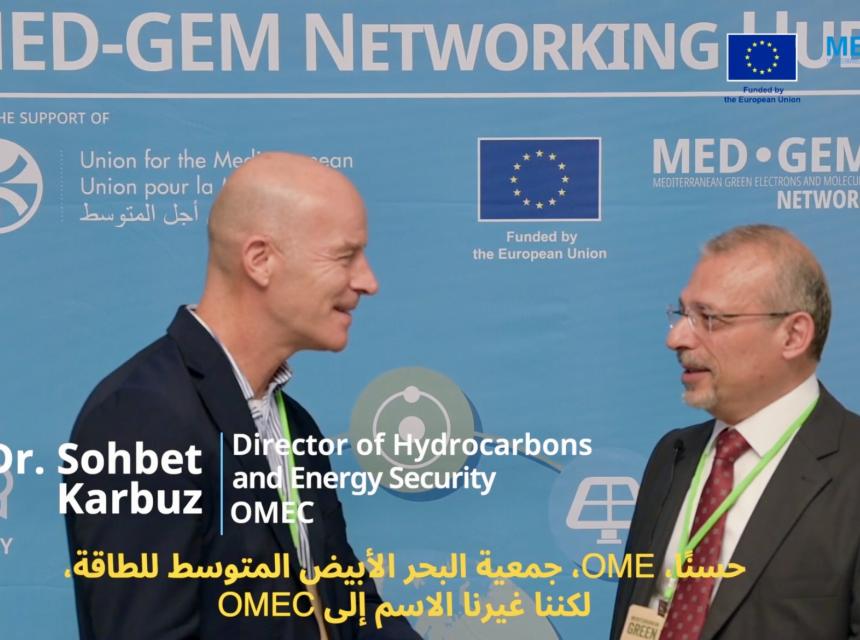Green Hydrogen’s Promise: OMEC's Insights on Navigating Potentiel and Pitfalls in the Mediterranean
As Europe ramps up its green hydrogen ambitions, the Mediterranean region emerges as a pivotal player in the energy transition. Dr. Sohbet Karbuz, Director of Hydrocarbons and Energy Security at OMEC, discusses the future of hydrogen trade, the role of existing infrastructure, and the complex dynamics between northern and southern Mediterranean nations.

Balancing Ambitions: The North-South Hydrogen Dynamic
As Europe sets its sights on becoming a global leader in green hydrogen, the Mediterranean region is increasingly seen as both a potential supplier and strategic partner. Speaking at the Mediterranean Green Week in Istanbul, Dr. Sohbet Karbuz, Director of Hydrocarbons and Energy Security at OMEC, highlighted the nuanced roles different Mediterranean countries might play in this emerging market. He emphasized the need for a realistic appraisal of the region’s hydrogen potential, cautioning against overestimating the pace and volume of hydrogen exports from the South to the North Mediterranean. “There is surely potential,” he said, “but maybe we should be a little more realistic in terms of quantities and time frame.”
Diverse Energy Profiles and Economic Implications
The varying energy profiles of Mediterranean countries shape their potential in the hydrogen market. Dr. Karbuz pointed out that major energy exporters like Algeria, Libya, and Egypt could leverage hydrogen production to free up natural gas for export, thus boosting their revenue streams. Conversely, import-dependent nations such as Morocco and Tunisia could utilize hydrogen to reduce their reliance on imported hydrocarbons. However, the significant operational expenses and the need for substantial investment pose challenges. “Who will finance it? Whether those countries will attract enough investments remains to be seen,” noted Dr. Karbuz, underlining the uncertainty surrounding the scalability of the hydrogen economy in these regions.
Repurposing Infrastructure for a Hydrogen Future
Infrastructure is pivotal to the Mediterranean's hydrogen future. Dr. Karbuz discussed how existing natural gas pipelines, such as the GME pipeline from Morocco to Spain and the Trans-Mediterranean Pipeline from Algeria to Italy, could be repurposed for hydrogen transport. He also highlighted the “Eastmed” pipeline, initially intended for transporting natural gas from Israel and Cyprus to Greece and Italy, now being reconsidered to be hydrogen-ready. For some projects, particularly in Egypt, shipping hydrogen derivatives like ammonia to Europe might be more feasible. The ability to adapt and repurpose existing infrastructure is crucial for facilitating hydrogen trade and integrating renewable energy into the region’s energy landscape.
As the Mediterranean navigates these complex transitions, its strategic position and resource diversity present both opportunities and challenges. Collaborative efforts within frameworks like the Union for the Mediterranean Gas and Hydrogen Working Group, where Dr. Karbuz plays a key role, will be essential to align the varied interests and capabilities of Mediterranean countries. Only through such coordinated endeavors can the region realize its potential as a cornerstone in Europe’s green hydrogen strategy, contributing to a more sustainable and interconnected energy future.

